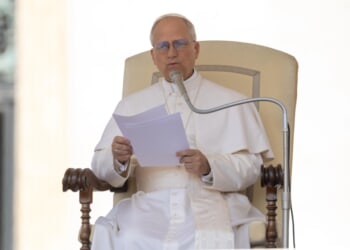“Today we join a growing chorus of state and federal courts across the United States, singing from the same hymnal, in concluding that the claims raised by Bucks County are not judiciable by any court in Pennsylvania,” stated Bucks County Court Judge Stephen Corr in a forceful dismissal of one of the latest climate lawsuits. His words reflect a broader legal shift: courts are increasingly rejecting baseless climate lawsuits filed by states and municipalities seeking to hold energy companies responsible for global emissions.
Corr’s ruling came just days after another dramatic development — Puerto Rico voluntarily dropped its own climate lawsuit. Less than a year after suing major energy companies, the commonwealth withdrew its case from federal court without initial explanation. The message, however, was clear: the lawsuit was legally weak and politically unsustainable.
Puerto Rico’s move marks yet another failure in a growing line of climate lawsuits. Courts in Maryland, Delaware, New Jersey, New York, and now Pennsylvania have dismissed these copy-paste lawsuits as improper attempts to shift national and international climate policy into state courtrooms. Judges have concluded that these cases, no matter how creatively pled, are about global emissions—something that only federal law and agencies like the EPA can regulate. (RELATED: Gas Crisis Looms Over California As Dems Continue To Impose Crippling Regs)
In Bucks County’s case, Judge Corr was particularly critical. He noted that, although the complaint tried to focus on deceptive marketing, it mentioned “emissions” over 100 times. That wasn’t a coincidence, it was a fatal flaw. “While Bucks County does everything it can to avoid the issue of emissions, it cannot avoid the fact that if there were no emissions there would be no damages,” Corr wrote. That conclusion, he ruled, rendered state laws incapable of adjudicating this issue.
Puerto Rico reached a similar conclusion. Faced with recurring blackouts, a failing grid, and some of the highest energy prices in the country, the government realized the lawsuit would only further alienate the very companies needed to modernize its infrastructure. Continuing the litigation would have delayed real progress on energy reform. Dropping it was the only responsible move.
These lawsuits have never been about advancing pragmatic approaches for addressing climate change or energy. Lawsuits don’t build power plants, improve grids, or make energy more affordable. Instead, they create legal chaos and chill investment. Trial lawyers hope for billion-dollar payouts, but ordinary citizens are left footing the bill—without any guarantee of environmental or economic improvement.
Puerto Rico’s decision is part of a larger pattern. In Maryland, judges dismissed cases brought by Baltimore, Annapolis, and Anne Arundel County, ruling they interfered with federal authority. In New Jersey, a judge declared that only federal law can govern claims involving global emissions. And in New York, a second lawsuit from the city was tossed for failing to prove that consumers were misled about the environmental impact of fossil fuels.
In addition to these judicial defeats, lawmakers have been exercising increasing scrutiny and investigative oversight into the outside forces propping up this litigation. On June 25, Senator Ted Cruz convened a Senate Judiciary subcommittee topic on “China and the Left’s Lawfare Against American Energy Dominance.”
Despite the cascade of legal defeats elsewhere and this growing scrutiny, plaintiffs like Hawaii and Honolulu remain outliers. They are pressing forward with climate lawsuits. Ironically, Hawaii is a poster child for dependence on oil and gas for the state to operate. Energy Information Administration findings have noted “petroleum accounts for about four-fifths of Hawaii’s total energy consumption, the highest share for any state.” Given this fact, the notion that Hawaii and Honolulu have allegedly been deceived into consuming fossil fuels is clearly discredited.
Hawaii alleges that fossil fuel companies violated constitutional duties to protect natural resources. But this theory has already drawn strong federal pushback. The Trump administration has responded with its own lawsuits, arguing that Hawaii’s impending case violated the Clean Air Act and intrudes on federal regulatory authority.
Hawaii’s legal campaign is misguided. Like Puerto Rico, Hawaii faces high energy costs, fragile infrastructure, and dependence on imported fuel. But instead of pursuing real reforms, it has chosen courtroom battles destined to fail. The state’s lawsuit won’t lower electricity bills, attract investment, or make the islands more resilient to weather developments.
Puerto Rico has now joined the ranks of jurisdictions recognizing this reality. Alongside judges in Pennsylvania, New Jersey, Maryland, Delaware, and New York, it has helped expose the climate litigation campaign as legally baseless and politically performative.
The message is clear: courts are not the place to set national climate policy. That responsibility belongs to Congress and federal regulators—not state judges being asked to rewrite the rules of global energy.
It’s time for Hawaii and Honolulu to wake up. They are among the last holdouts in a campaign that has lost credibility and legal footing. Puerto Rico saw the writing on the wall and stepped back from the brink. Hawaii and Honolulu should do the same before wasting more time, taxpayer money, and political capital.
When the power goes out, communities need more than grandstanding lawsuits. They need energy solutions, not stunts. It’s time to move on.
Mandy Gunasekara served as the Chief of Staff at the U.S. Environmental Protection Agency during President Trump’s first term.
The views and opinions expressed in this commentary are those of the author and do not reflect the official position of the Daily Caller News Foundation.
All content created by the Daily Caller News Foundation, an independent and nonpartisan newswire service, is available without charge to any legitimate news publisher that can provide a large audience. All republished articles must include our logo, our reporter’s byline and their DCNF affiliation. For any questions about our guidelines or partnering with us, please contact licensing@dailycallernewsfoundation.org.









![Florida Man With Violent History Arrested for Choking a Cop [WATCH]](https://www.right2024.com/wp-content/uploads/2025/06/Eleven-Stabbed-in-Attack-at-Salem-Homeless-Shelter-Across-From-350x250.jpg)







